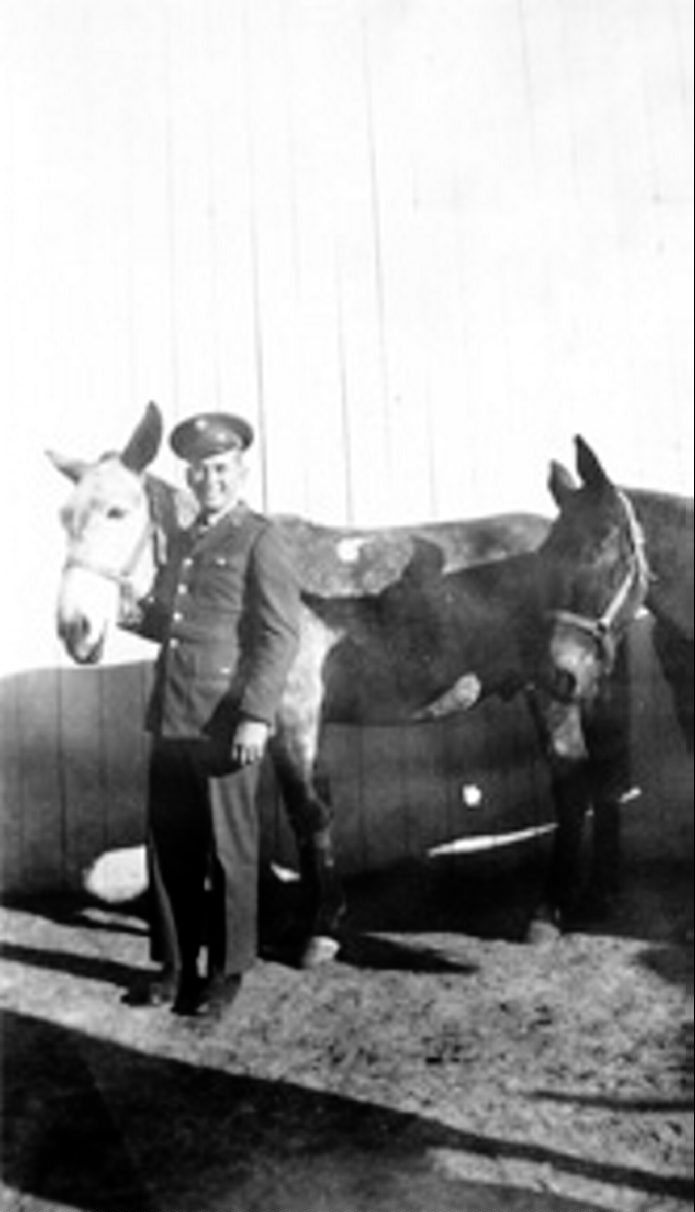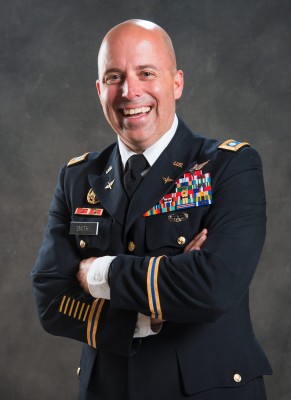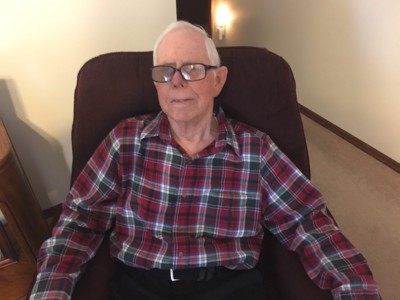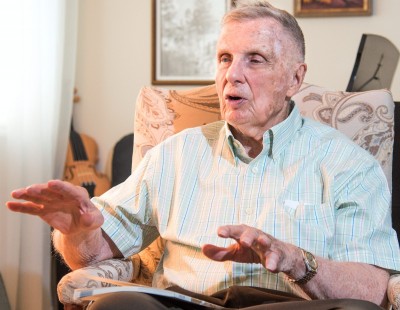Raymond James
By Dave Hinton

Photo By Provided
RANTOUL — Raymond James’ early World War II training involved some mule-headed comrades.
The 97-year-old Rantoul resident was assigned to a 75-mm pack artillery company that would use mules to transport the guns.
In 1942, he received his draft notice not long after he became engaged to Betty Weber.
The couple got married before he went overseas.
After being drafted, he headed to Chicago, and “anyone who walked in passed (the physical),” James remembers.
He was sent to officers school, becoming a “90-day wonder,” a second lieutenant. He sailed to Europe on the Queen Elizabeth, which moved so fast that escort ships couldn’t keep up.
The initial plan was to send the company to Japan.
The mules were used because they are sure-footed, and the brass figured the artillery company would be negotiating some precarious landscape.
“It took six mules to carry a gun,” James said. “They were mean.”
James said the mules got better treatment than the men.
“We came off a long hike, and we’d be all hot and sweaty. They’d say, ‘Get back here.’ We had to brush the mules dry before we got a drink. They told us, ‘The mules cost $50, and we get men for nothing.'”
James was glad he didn’t have to go into action with the four-legged transport. Things changed. Trucks replaced the mules, the artillery his company employed were 8-inch guns and the theater of operations was Europe.
“The guns weighed about 71 / 2 tons,” James said.
James’ company left Liverpool and landed on the beaches of France after the landings at Normandy.
Spotting for the artillery was different back then.
“We had a Piper Cub that would go up and spot targets for us,” said James, who also remembers climbing up in a grain elevator with another officer along the Rhine River.
They spotted a camouflaged German tank across the river and called in artillery to hit it. What they didn’t mention was that it was a fuel tank, not a German army tank. The resulting conflagration delayed crossing the Rhine by a day.
Once in Germany, “we were moving pretty fast. We had bombed out the bridges on the Autobahn so the Germans couldn’t retreat as fast. So we had to go around and below (the bombed-out bridges),” James said.
He said he never felt his company was much in harm’s way.
“By being the big guns, we had to be out in the open away from everything because we took up a lot of room,” James said.
The 8-inch guns could shoot 12 to 15 miles. James’ company manned four guns. His job was that of “motor officer,” keeping the trucks in shape, and he generally rode at the end of the convoy.
At one point after crossing the Rhine, artillery was lined up “almost hub to hub for miles,” and the sound was deafening.
James said the food wasn’t that bad. The men would put the C rations on the truck engine so they would be warmed up by noon.
James’ only leave in four years was a two-day visit to London.
The Rantoul native drove past German concentration camps, but the men weren’t allowed to go in. He said they had no idea of the German atrocities until then. He recalls a woman on a German farm showing him a photo of the bodies of slain Jews lined up in a ditch.
James made it to Berlin after it fell. The city was in ruins.
James exited the service in 1946 as a captain.
“That’s pretty good in four years,” he said.
He later became postmaster in Rantoul, retiring from that job in 1980, and held a variety of other jobs after that, from school bus and taxi driver to working at a grocery store.
He spends his winters in Arizona and has won four horseshoe tournaments in the past six years.
“People say I’m lying when I tell them how old I am,” he said.
His wife died in 2011. James has three children — Peggy Mayo of Arizona, Mary Lou Graham of Rantoul and Richard James of Paris, Ill.
Do you know a veteran who could share a story about military service? Contact Paul Wood at pwood@news-gazette.com.
Read more stories from local veterans:
 Randall Smith
CHAMPAIGN — Lt. Col. Randall Smith has learned to move fast. He was pulled out of embattled Kosovo in 2001 to move on to …
Randall Smith
CHAMPAIGN — Lt. Col. Randall Smith has learned to move fast. He was pulled out of embattled Kosovo in 2001 to move on to …
 Dick Oliver
CHAMPAIGN — From the Korean War to the Cold War to Vietnam, Dick Oliver kept the planes flying for 20 years. The Air For …
Dick Oliver
CHAMPAIGN — From the Korean War to the Cold War to Vietnam, Dick Oliver kept the planes flying for 20 years. The Air For …
 William Hall
URBANA — Future University of Illinois Professor William Hall served on a Merchant Marine ship without a convoy in a Pac …
William Hall
URBANA — Future University of Illinois Professor William Hall served on a Merchant Marine ship without a convoy in a Pac …